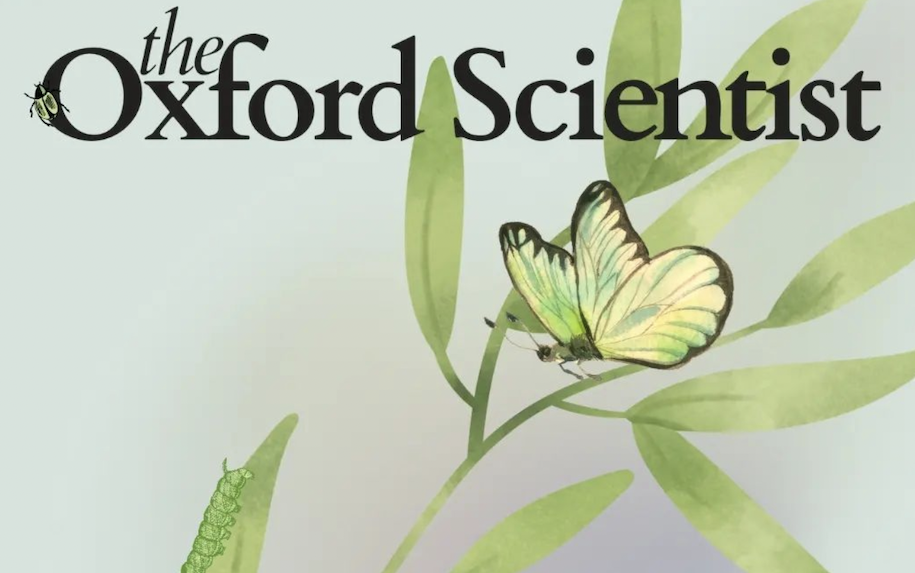By Angus Barrett
While I was getting to grips with the colourful life of systems biologist Denis Noble, I came across the website of his traditional Ocidian music group, The Oxford Trobadors. I soon learned that music is more than just a relaxing pastime for Denis. Anybody familiar with his work will know how central it is to his understanding of living things and their place in the universe.
In brief, Noble believes that some of the reductionist metaphors and preconceptions that biologists once brought to the world to understand it have now become so entrenched that they are almost universally mistaken for empirical fact. His two popular books on biology, The Music of Life and Dance to the Tune of Life, unpick these assumptions. They tackle the reductionist view of ‘the selfish gene’ head on, challenging it as opinion and rightfully reducing it to metaphor – what’s more, a metaphor that isn’t totally substantiated by the verifiable facts. Noble argues in favour of using a different metaphor. He lays out how an organism is more like a piece of music than a genetically determined machine, and how viewing it like this might shine a new light on life and how it evolves.
All of this may sound quite unscientific, but Noble has to be taken seriously. He is a widely celebrated physiologist, perhaps best known for pioneering the field of systems biology, which was founded on the famous anti-reductionist principle that ‘the whole is more than the sum of its parts’. He is Emeritus Professor of Cardiovascular Physiology at Balliol College, has served as the President of the International Union of Physiological Sciences, and has received numerous other awards and honorary positions. Noble is now in his mid-eighties. However, when I sit down to speak with him in a quiet college cloister, anticipating a reflective conversation with a man in the autumn of his life, it quickly becomes clear that his work is far from finished. ‘My mission at the moment,’ he tells me, ‘is to shake the foundations. No less than that.’
As I have mentioned, the foundations he refers to are those of modern evolutionary biology; assumptions which have been widely popularised by works like The Selfish Gene and Doug Futuyma’s seminal undergraduate textbook, Evolution. According to Noble, many of the rules on which modern evolutionary theory is built have now been demonstrably broken: ‘The selfish gene is built on sand,’ he says. Some of the long-held assumptions he draws critical attention to are, firstly, that the germline is completely cut off from environmental influence, secondly, that the inheritance of acquired characteristics is impossible, and, thirdly, that there is unidirectional causality from genes to proteins to cells. These are three ideas commonly referred to, respectively, as the Weismann Barrier, Lamarckism and the Central Dogma.
Noble explains that evidence for the breaking of these rules has led him and others to call for modern evolutionary theory, which is based on a gene’s-eye perspective which naturally follows on from these assumptions, to be superseded by an extended evolutionary synthesis which he calls the ‘Third Way of Evolution’. This is centred around his theory of biological relativity. Just as Einstein established that there is no absolute frame of reference in space, so Noble proposes that ‘there is no privileged level of causation between biological levels’. He argues that, in order to fully understand evolution, we must look beyond the gene’s-eye view and consider life on a greater variety of levels that reciprocally interact with one another.
Even though Noble presents his case very convincingly, he has been met, as you might expect, with much resistance for going against the grain. It is no secret that science rewards those who toe the line and Noble certainly has a rebellious streak. But, nevertheless, he reckons the amount of backlash he has faced is disproportionate. He has a couple of ideas about why.
Firstly, much of Noble’s more hostile opposition has come from evolutionary biologists in the United States, which is a pattern he does not see as trivial. ‘There is a completely different atmosphere in the whole debate in the US, and the reason is simple,’ he tells me. ‘There is an extraordinary contrast between the public acceptance of evolutionary biology in the US and in Europe. They cope with 40% of the population seriously believing evolution never happened.’ Essentially, there is always concern among the scientific community in religious countries like the US that any cracks in the edifice of evolutionary biology will quickly be filled with creationist ideas. This, according to Noble, has led to the reinforcement of certain dogmas and assumptions for which there is insufficient evidence. Having witnessed first-hand the misrepresentation of his ideas by religious groups, Noble is clearly sympathetic to the situation in the US. But I sensed in him great despair at how science has become a set of facts, and no longer the process by which we unravel them. ‘Let’s find a way of creating a kind of demilitarised zone for this peculiarly North American conflict between religion and evolutionary biology,’ he implores.
Secondly, as a physiologist with controversial views on evolutionary biology, he has been accused by some of meddling outside the specialist field in which he originally trained and established his reputation. But this gets to the heart of Noble’s holistic philosophy. He believes that this very criticism – the idea that a scientist should not speculate beyond their specialist field – is just another symptom, or perhaps even a cause, of excessive reductionism within the natural sciences. When I ask him about the relationship between reductionism and specialisation, he soberly replies, ‘The current situation in biology is, well, I would actually say even a disaster. I think it’s that serious. And whether that is attributable to high degrees of specialisation and very few wandering into the hinterland of the speciality rather than the speciality itself, I think the answer to that has to be yes.’
Noble often makes clear that this ‘disaster’ is not necessarily related to reductionism per se. ‘Reduction is fine,’ he goes on to say. ‘I have absolutely no quarrel with it. After all, the work I was doing all those years ago identifying ion channels involved going down to the lowest level one, at that time, could be at. But it’s not the organism itself.’ In other words, he thinks that it is the exclusive use of reductionism at the expense of other holistic approaches which is hindering scientific progress. As a systems biologist, Noble believes that downwards causation between levels of biological organisation is just as important as upwards causation. By extension, a complete scientific understanding of life requires not only people who break it down into its parts, but also those who can recognise large-scale patterns and see the whole. Reductionism only gives you half the story, and all scientific fields can benefit from outside perspectives which have not become bogged down in dogma; those that look at the bigger picture.
As our conversation goes on, a pattern becomes clear. What Noble is most against is certainty, whether it is inflexible boundaries between biological systems, fundamental frames of reference in evolution, or claims to absolute truth. Like many scientists before him, he has arrived at the paradoxical position that all we can certainly know is that we know nothing for certain. In the final chapter of Dance to the Tune of Life, he puts forward his theory of epistemological relativity, which is the (somewhat self-refuting) idea that ‘things can only be understood in a relative sense: relative to the question we ask; relative to the scale to which we asked the question; relative to our present knowledge of a universe of which we will always have questions remaining.’
Naturally, as a relativist, Noble holds a healthy scepticism about the power of language, which is itself a metaphor for the world it describes, to convey ultimate truths. ‘All languages are prisons of culture but liberators of communication. We need languages to communicate, but our languages in turn cloud what we understand,’ he says. There is a telling Zen saying on this subject that words are like fingers which point to the moon. Without the pointing finger, you would not notice the moon, but the pointing finger isn’t what matters most. All of our understanding, scientific understanding included, is mediated by metaphors – they are fingers that point us in the direction of something beyond. But metaphors can, by their very nature, only ever tell part of the story. In Noble’s words, ‘the harm is done when we take the metaphors too literally, extend them beyond their range of application’. In this sense, he has come to the conclusion that if we push questions about life and the universe far enough, words will eventually fail us.
And that is why he is so drawn to music. It was Hans Christian Anderson who once wrote, ‘Where words fail, music speaks’. Noble cites another Zen saying along similar lines: ‘No words are needed for those who understand music’. Although all metaphors have their limits, Noble recognises their necessity and therefore believes that some are better than others. For instance, having spent a considerable amount of time in Japan, he believes that languages which emphasize the verb over the noun predispose their speakers to the idea that life, like music, is a relational process and not a collection of isolated things. Science needs its metaphors, its assumptions, its metaphysical starting points which may not be derivable from purely empirical observations, but these should be recognised for what they are. To invoke an insight of Wittgenstein’s, they are ladders to understanding which we must throw away after we have climbed them. If Denis Noble is correct, as I suspect he is, then it is high time for biologists to throw away some of the redundant metaphors and assumptions they have been holding on to, seemingly as if their lives depended on it.



